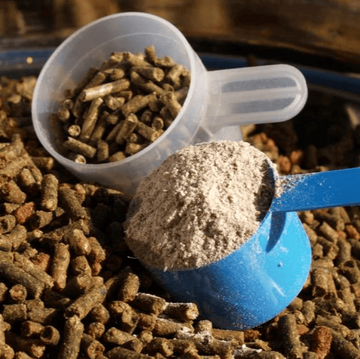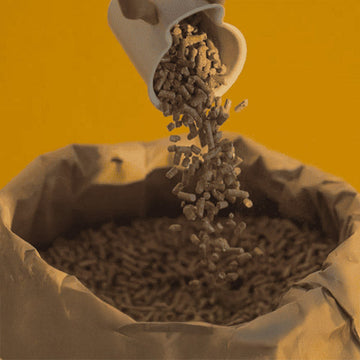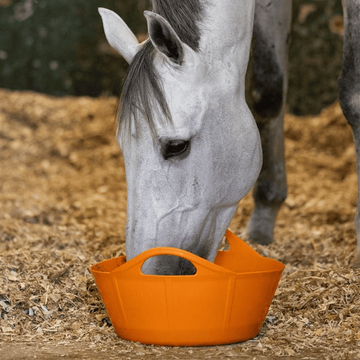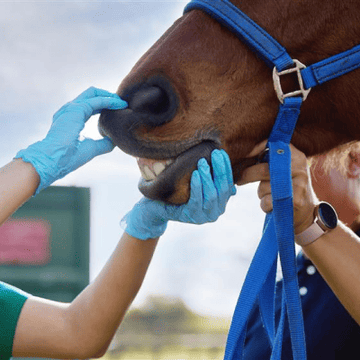In general, an allergic reaction corresponds to an immunological hypersensitivity with clinical signs triggered after exposure to a stimulus that causes no clinical alteration in a healthy horse.
In the case of a food allergy, the immune response develops following the ingestion of one or more antigens (molecules recognized as "invaders" by the horse's immune system), known as allergens. Among the foods described as potential allergens are alfalfa, barley, beet pulp, wheat, etc.
"Food allergies in horses are rare and difficult to diagnose, and can occur at any age."
Signs of food allergy
Food allergies in horses typically present with dermatological signs such as non-itchy hives, itching, and/or lesions resulting from scratching. However, they can also manifest through gastrointestinal symptoms.
Given the dermatological symptoms, other causes of skin disease should be ruled out (such as mite-related dermatoses, dermatophytosis, bacterial folliculitis, etc.), as well as other allergic diseases (such as insect bite hypersensitivity, contact dermatitis, or atopy).
Diagnosis
Currently, the following are available:
-
Intradermal tests, which evaluate the skin’s reaction to the injection of a possible allergen;
-
Blood tests, which detect the reaction of a specific antibody (IgE) to different food molecules in the lab.
Intradermal testing shows low reliability, and blood testing is also not considered a reliable option on its own, because:
-
The allergen causing the allergy may not be included in the panel (and therefore may go unidentified);
-
Cross-reactions may occur, potentially leading to false positives.
A group of researchers (Dupond et al., 2016) even concluded that blood tests based on IgE reactions are not reliable for diagnosing food allergies in healthy horses.
Therefore, the most accurate diagnostic method involves an elimination diet, where the suspected food is removed from the horse’s diet (ideally for a period of 8 to 12 weeks), while monitoring for clinical improvement. Generally, allergic horses show improvement within 4 to 6 weeks. These horses may later undergo a provocation diet to confirm the allergen (a controlled reintroduction of the suspected food).
Treatment
Currently, treatment involves the correct identification of the food allergen and strict avoidance of its ingestion.
In such horses, close observation and careful selection of forage and complementary feeds (concentrates and supplements) are recommended. Therapeutic success depends on the commitment of the owner/rider/caretaker in avoiding the identified allergens.
Key takeaways:
-
Although there is no precise data, food allergies are considered rare in horses.
-
The diagnostic process should involve an elimination diet.
-
Therapeutic success depends on avoiding ingestion of the identified allergens.



